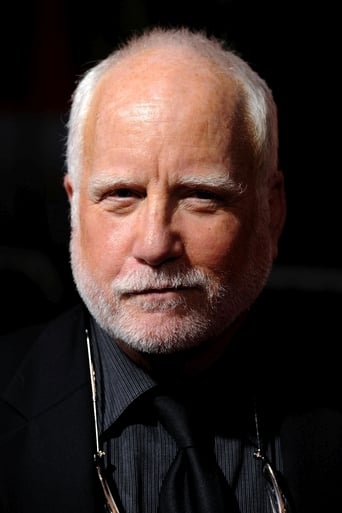Plantiana
Yawn. Poorly Filmed Snooze Fest.
Solemplex
To me, this movie is perfection.
VeteranLight
I don't have all the words right now but this film is a work of art.
Platicsco
Good story, Not enough for a whole film
francois_montandon
I have been diagnosed bipolar 1 and a half year ago and must say that, read, saw a lot about this. This documentary is by far the best I saw... I would suggest to any bipolar trying to explain what is manic depression about, to recommend this documentary. It shows different levels, aspects of the trouble with great humanity. Stephen Fry also shows how his environment perceives his trouble. A few aspects, however, could have been mentioned in the movie, particularly the heredity. My grand father and my uncle were also manic depressive and ended their lives miserably... Another criticism is about the Stephen Fry's personal choice. I can understand it as he has been successful in his career. However, owed to a certain discrimination, lost of manic depressive end up living in a permanent loneliness and sadness. At least, it was my case. For those people, and it is the case of the majority of bipolar people, there is no other choice than go for medication and therapy.
bob the moo
After suffering for many years with extreme swings in mood and feeling, Stephen Fry was diagnosed at age 37 as being bi-polar or suffering from being a manic depressive. Perceiving there to be a low awareness of this mental health problem, Fry investigates what it means to suffer from manic depression, meeting others who suffer from it in all walks of life – from the famous to the man in the street, from the old to the young children.I have a vague memory of my mother suffering from depression at one point in her life, or at least I'm pretty sure I do. We never really talked about it but I do recall her struggling to get out of bed for months but I do remember my understanding of it all being limited. So with that in mind I though I would catch up with this two-part film when it was shown recently on BBC4 as part of a season of films to mark Stephen Fry's 50th birthday. With the personal hook of his own condition, Fry meets people who also suffer and explores what it means to them.This exploration paints a picture of a crippling mental illness that takes people from moments of "normality" to the point where suicide is an option. This range of input does provide enough information to understand the scale of the condition and does go some way to helping even the cynic come around. Even watching the film I found myself occasionally thinking that it was just a bad mood that one could just shake oneself out of, but confronted with those suffering from it, it is hard to hold this view for long. The problem is that the personal hook that makes this film accessible via Fry is also a weakness as it does heavily rely on people talking as part of quite a personal investigation. This is lifted a bit in the second part of the film where Fry continues to talk to experts about the subject. That said, the personal approach is also a strength because it does keep the people in the fore rather than the disease. This approach does help increase understanding for those of us fortunate enough to have no frame of reference for it.Overall it is not a perfect film because it does rather meander at times but it is still an interesting look at a mostly misunderstood or dismissed condition that takes a "matter-of-factly" approach and benefits from it.
trevorrogers42
In dispelling myths and opening up a dark illness to public light, Stephen Fry has shown the way forward in raising awareness for BiPolar. Mental issues and illness hasn't come all that far from the Victorian, out of sight - out of mind, asylums of the past. But with candidness and honesty we are taken on a personal journey, that was well researched to give a insight to the traumatic and chaotic lives of sufferers.The stigma surrounding mental illness is a heavy burden for those affected and their families yet we see Stephen Fry not giving a damn about others perceptions of his illness. A truly ground breaking and thought provoking documentary. A must see for anyone connected with manic depression or those looking to understand what is at times incomprehensible.
Gordon-11
This is a documentary film about Stephen Fry's and other people's life with bipolar affective disorder.I find the documentary well researched and well balanced. For example, they had various leading British psychiatrists talking about the disorder. In addition, the very different views on bipolar affective disorder in the United States were also represented. The spectrum of severity of bipolar affective disorder was represented, ranging from severe depressive episodes to manic episodes with psychosis. Various forms of treatment were touched upon. It also touched on briefly on unipolar depression to make the spectrum of mood disorder more complete.I was the most impressed by the number of celebrities and laypeople appearing on the documentary to talk about their own experience with mental illnesses. This certainly helps to reduce the stigma attached to psychiatric illnesses.It could easily be imagined that it must have been a painful documentary to make for Stephen Fry. I admire his courage. I certainly hope that this documentary will raise public awareness of bipolar affective disorder and reduce the stigma attached to it.




